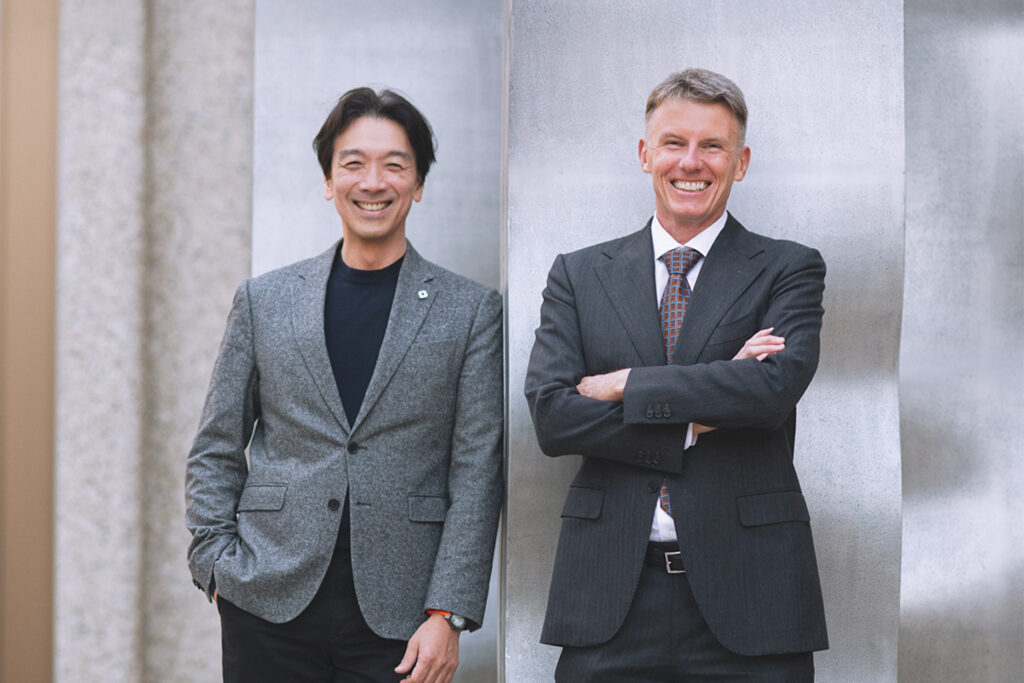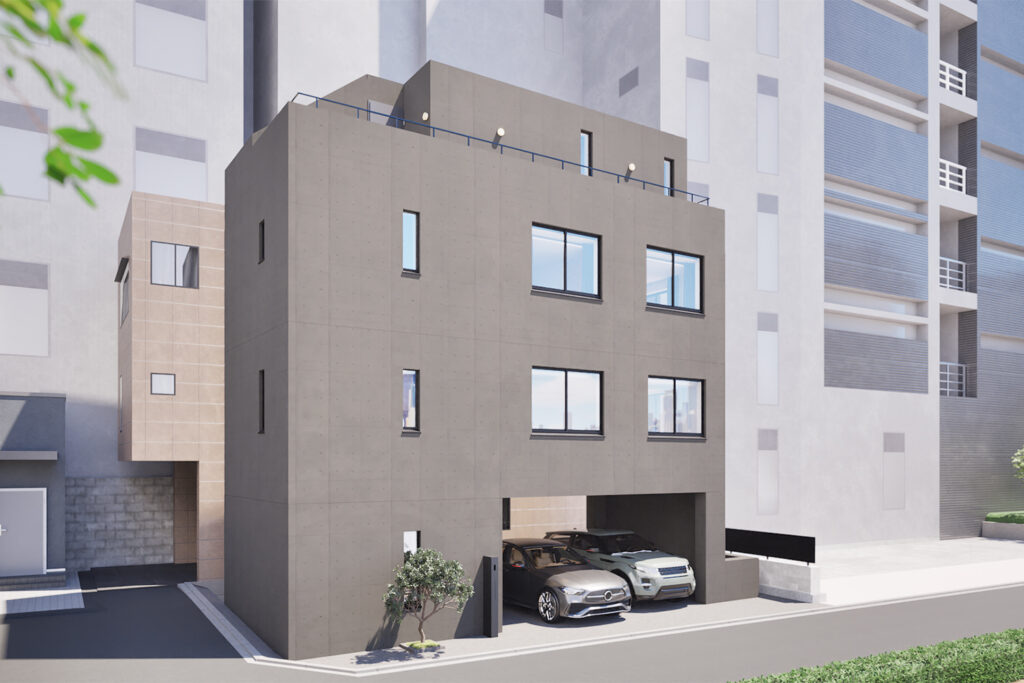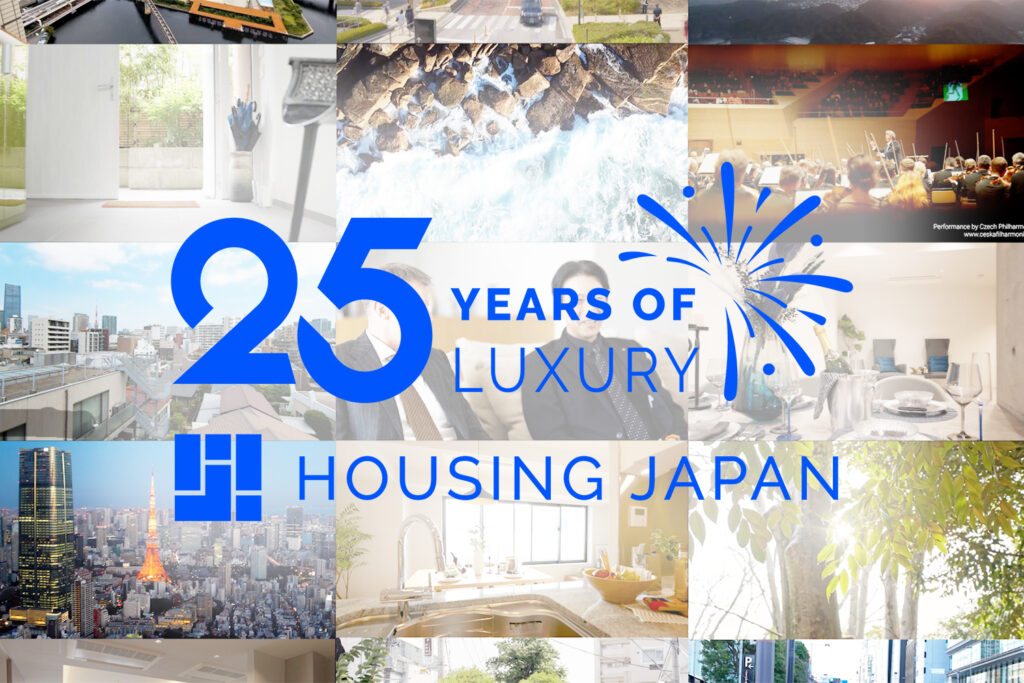This article was originally published in Housing Japan Magazine, Spring 2020 edition.
We talk to the men who started it all
Photos and Interview: Alfie Goodrich
With a diverse and dynamic portfolio of interests that includes rental, sales, new-build, short-term let, hotels and asset management, Housing Japan has become a veritable one-stop-shop for all things related to property.
We talk to co-founders Joe Rigby and Mitsuo Hashimoto about the company.

Alfie Goodrich (AG): So, how did it all start?
Joe Rigby (JR): Well, I was working in banking at the time and I’d just relocated back to Japan from Hong Kong and was looking for an apartment. I met up with an agent, who took me around a few properties, and they did such a terrible job. I came back to my desk and was complaining to the guy sitting next to me, who was also one of the original founders, and asked him, ‘We can do better than this, right?’. He said we should meet his friend, Hashimoto-san, and talk about it. That was how it all started. Hashimoto-san and I met and, as the old cliché goes, the rest is history.
Hashimoto-san, what were you doing at that time?
Mitsuo Hashimoto (MH): I was working in an expat rental company, specialising in residential for expats. Joe and I met, and I was then able to help him and a couple of his colleagues find properties. Joe and I talked about some ideas. It all started pretty quickly after that.
Joe, how quickly were you able to realise your goal?
JR: Well, we started out as a very small business. The thing that enabled us to quickly grab a foothold in the market—a mature market with a lot of established competitors—was that we were the first company to set up a website with information about Japanese real estate in English. No one had done that before. It seems almost trivial now but, back in 2000, when web users were just graduating from Netscape, it was a big thing.
In the beginning it was as simple as that?
JR: Well, sure, it sounds simple now, but that was a big leap then. That’s what often characterises the best ideas: they’re simple. From the first day, we put information on Tokyo apartments on the web in English, the phone started ringing. Because we were that crucial step ahead, we had a business overnight. In the way we do things, to this day, we try to deliver to people the best information, in the best format we can. That was the impetus for us 20 years ago, too, and has been an edge for our business throughout these 20 years.



Moving on from these important foundations, can you briefly explain the evolution of Housing Japan?
JR: We started as a leasing company but soon found many of our clients were living in Japan on a long-term basis and wanted to buy property. So, we were very early in the market with expat sales, introducing Tokyo properties and helping people purchase them. There was virtually no one doing that at the time. Then, as people purchased but subsequently left Japan, they needed someone to do property management. We set up a property management team and now manage close to 500 properties for owners who live in Japan and offshore. We also have a branch of Housing Japan in Singapore, to communicate with clients there. We’re now developing expat-style luxury villas in Tokyo and have had great success doing that, first with our Gravitas project, now with our new Zenith property. And there are more coming.
MH: Short-term rental is a key area for us now. In the current real estate market, prices have gone up a lot and the investors are looking at the yields of Tokyo properties, which have come down. If the yields go down, there’s no big appetite for investing. Therefore, we wanted to create a product whose yields are high.
One of the products we thought about was STR or short-term rental. It’s sort of a hybrid between a long-term residential property and a hotel or serviced apartment. We started doing STR as a monthly thing, which increases the yield, averaging about 1%. Now we’re also focusing on daily STR properties, which will further increase yields as operational and management costs go down. Our model is essentially ‘innovate and create’ always trying to think about how to deliver a good product to the investor.
How has the team grown over the past 20 years?
MH: Well, it started with just Joe and me. In this office now we have close to 60 staff: 12 on the asset management side and around 50 in Housing Japan.
Hashimoto-san, in the past 20 years of Housing Japan, is there one achievement that you’re most proud of?
MH: Everything! But I guess, if it has to be one thing, it’s that we can think about good ideas and, most importantly, act on them very rapidly. Other companies take time. They think of the downside, the risks. Whilst we also obviously think about risk, we think more about the upside. Creating something from nothing, acting on it rapidly, bringing it to market, delivering a return for the company and for our investors—this is what I enjoy most about Housing Japan.


Is there a secret to how it has worked out so well?
MH: I don’t know. I’ve been in the real estate environment for close to 30 years now. Joe spent a lot of time in the financial sector. These two areas of individual expertise proved to be a good marriage. I didn’t really understand what yields were, and Joe explained it to me. I explained about the real estate side of things to him and we connected. That chemistry is really what has made it all work well so far.
Going back to something discussed earlier; biculturalism. Do you think the bicultural aspect of the business has also fed that ability to respond quickly and implement new ideas?
MH: Absolutely. We have employees from around the world, from Australia, England, Italy and China, for instance. We need to think about situations quickly, respond quickly and keep the organisation comfortable. The market can change quickly, or we need to change it quickly. We need to flexible, and having a multi-cultural team is a crucial part of that. As an expat-focused real estate company in Japan, Housing Japan is not unique. There are perhaps 10 or so other companies out there like us in that respect. But, of all of them, I think we are certainly the most international company in terms of staff. I’d say the majority of the other expat real estate companies are still made up of a majority Japanese staff.
JR: Here at Housing Japan, with our staff roster, we’re a shade over 30% non-Japanese. But on top of that, all members of our Japanese team have international experience, having either lived or worked overseas. Our clients are a mix of Japanese and non-Japanese. As important as having an international staff is, the fact that we have locals with international experience and an international mindset is also very important.



So, Joe, a highlight of the last 20 years for you?
JR: Like Hashimoto-san, I’m very proud of the diverse team that we’ve created and of our risk-taking culture. That’s something that’s very valuable to us. Don’t get me wrong, we’ve made a lot of mistakes. Over the years we’ve tried a lot of businesses that haven’t worked but
we’re not afraid to try new things. That ability and attitude is crucial. The ethos of the business is that we want to keep on growing and, at the same time, keep trying new things for our clients.
Thinking about the future, is there an exciting project you can talk about?
MH: We have some really exciting things in the pipeline for the future! What we can talk about is our Gravitas project. When you look at the average price of building a new house in central Tokyo, it’s somewhere between ¥100–200m. For people who are wealthier and want something bigger, better or different to that? Well, there isn’t really so much choice. That’s why we started building our Gravitas series. The very first Gravias was ¥650m and the next one we build will probably be around ¥1.2bn. We’ve signed a deal with a company for building soon, which will be anywhere up to around ¥2bn.
JR: And the fact that Housing Japan has sales, leasing, asset management—all these diverse but interlocking pieces— puts us in a great position to drive, manage and complete new and ambitious projects. To be honest, we don’t really see ourselves as competing with other expat property companies here in Japan.
Aspects of Housing Japan put us into the same territory as CBRE, Savills, Ken Corporation Ltd and even Mori Building—which is also a client.
Our unique business model could be summed up with the words ‘inbound’ and ‘real-estate’. It involves taking overseas and expatriate investors and clients and interfacing them with the Japanese property market. And we don’t just do homes anymore. We do storage, we have short-term rental, we introduce investors, we manage a portfolio of hotels for investors. The storage business portfolio alone is valued above $50m and 99% of its users are Japanese. We’ve evolved beyond just being an expatriate real estate company; we do asset management and asset creation. Housing Japan is a company that’s a combination of financial and real estate expertise. We have a diverse range of services and products, but we don’t ignore our roots, which is expat residential; that’s still a big part of what we do.











